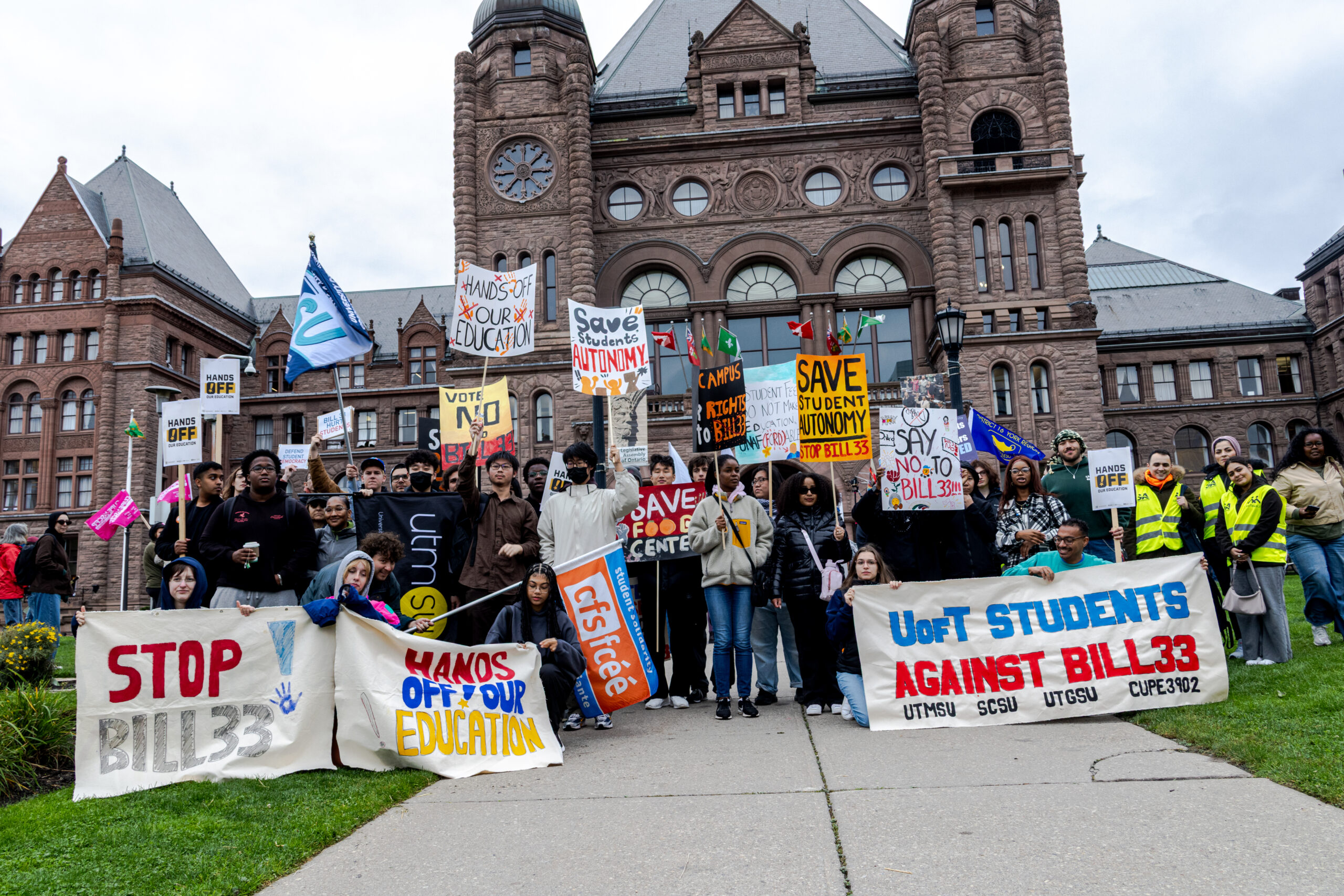Federal budget aims to open up trades, address sexual assaults on campus
Clarification: An earlier version of the story was unclear about METRAC’s support for the budget measures. Specifically, METRAC supports the increase in federal funding for sexual assault crisis centres on campuses.
The federal budget, which was released on Feb. 27, offers several new funding opportunities for post-secondary students, as well as measures to address gender-based violence on campus.
Apprenticeships
The budget sets out $46 million over five years to establish a pre-apprenticeship program to encourage underrepresented groups, including women, Indigenous Peoples and folks with disabilities to look at careers in the skilled trades.
According to the budget, the program will work in partnership with post-secondary institutions, training providers and employers to help people “make informed career choices and develop skills needed to find and keep good, well-paying jobs in the trades.”
The government is also launching a five-year pilot project worth $19.9 million where women would receive a grant of $3,000 for each of their first two years of training in one of 56 Red Seal trades, which are recognized to a national standard.
For Peyton Veitch, the Canadian Federation of Student’s national treasurer, the fact that the budget doesn’t mention student debt or tuition is a problem. He said that the investments in skills training and education for women and other underrepresented groups are welcome, but don’t address the accessibility problem in post-secondary education.
Veitch added that encouraging women in trades means addressing harassment they face in programs and on the job.
“It’s one thing if women are able to access the program from a financial stand point, but if they’re facing harassment, discrimination and inappropriate treatment in those programs, that’s going to be a significant barrier to getting more women certified in the trades,” he said.
Innovation
There is a $140 million investment over five years in the college and community innovation program aims to increase support for collaborative projects between businesses, colleges and polytechnics.
Abdullah Mushtag, College Student Alliance director of advocacy, said that the investment would help students stay in touch with changes in technology, the economy and better prepare them to land full-time jobs.
“We know that moving forward, we can’t just rely on the same strategies that we’re relying on now,” he said. “So seeing that the government is actually putting money into enhancing these programs, I think will better prepare our students when they’re out there looking for jobs.”
Gendered violence on campus
The government is also pledging up to $5.5 million over five years towards developing a national framework in addressing gender-based violence at post-secondary institutions.
The budget cites Statistics Canada surveys from 2014 that show that 41 per cent of incidents of sexual assaults were reported by students and 47 per cent of sexual assaults were reported by women between the ages of 15 and 24.
“This isn’t an issue that is going away,” said Awo Abokor, communications coordinator for METRAC, an organization that works to end gender-based violence. “(Sexual assault) is occurring in multiple spaces, in our workplaces, in our homes and we really need to address it with all system actors, including our employers, the folks teaching us and our peers.”
Abokor said that the $5.5 million is a welcome start and that a federal strategy to improve campus policies on sexual assault is needed.
“The funding is a good start, and I think the next conversation will be around solutions to end gender-based violence,” she said.
The budget also states that the government will consider withdrawing federal funding for post-secondary institutions that are not implementing best practices to address sexual assault on campus.
Indigenous education
The budget also includes an Indigenous skills and employment training program, an investment of $447 million over 5 years. The program is replacing the Aboriginal skills and employment training strategy and is aimed providing training for higher quality jobs.
“There a lot of things that the federal government could do to not only generate more revenue, but to reduce inequality and to fund the things that students have been calling for, whether that’s eliminating tuition fees, fully funding Indigenous education or making sure that we’re expanding childcare opportunities for student parents,” said Veitch.
Canada Summer Jobs
The Canada Summer Jobs program was also given a bump in the budget to the tune of $448.5 million over the next five years. The program subsidies the wages of secondary and post-secondary students between the ages of 15-30 working for eligible businesses and organizations.


